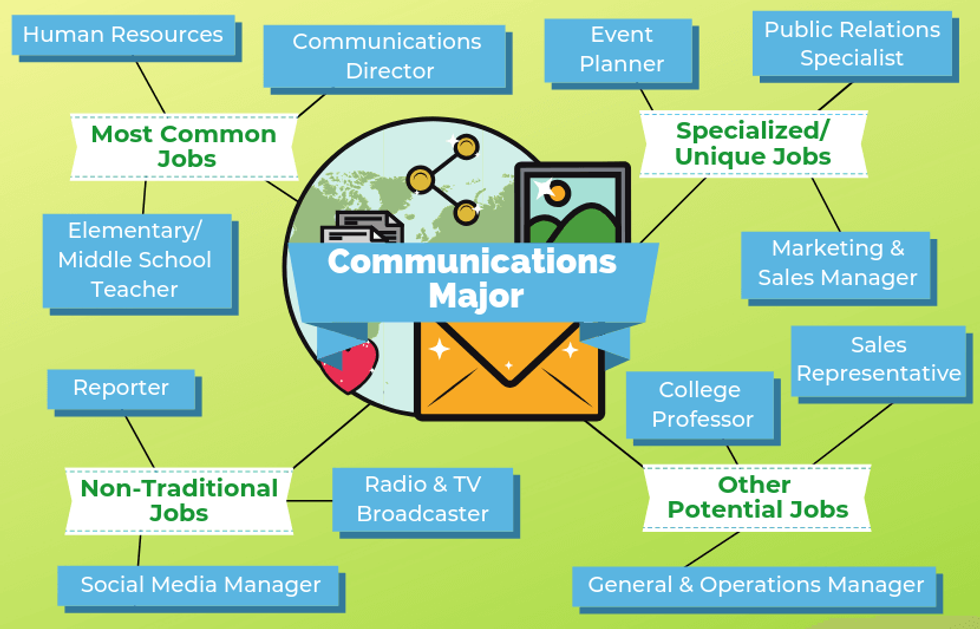What You Need to Know Before Starting Your Communications Major
Embarking on a communications major is an exciting journey that opens up a wide array of career opportunities in various industries such as media, public relations, advertising, corporate communications, and more. This article will provide you with essential information and insights to help you make the most of your communications major and set a strong foundation for your future career.

Understanding the Communications Major
What is a Communications Major?
A communications major focuses on the study of how information is conveyed and received between individuals, groups, and organizations. It encompasses various forms of communication, including verbal, non-verbal, written, and digital. The major covers a broad spectrum of topics such as media studies, journalism, public relations, marketing, and digital communication.
Core Subjects and Specializations
As a communications major, you will encounter core subjects that lay the groundwork for your understanding of the field. These typically include:
- Introduction to Communication Studies: An overview of the theories, principles, and processes of communication.
- Media and Society: Examines the role of media in shaping public opinion and culture.
- Public Relations: Focuses on strategies and practices for managing the public image of organizations.
- Journalism: Covers the fundamentals of news writing, reporting, and ethics.
- Digital Media: Explores the impact of digital technologies on communication practices.
In addition to these core subjects, many programs offer specializations or electives that allow you to tailor your studies to your interests. Popular specializations include:
- Corporate Communication: Focuses on internal and external communication strategies for businesses.
- Broadcast Journalism: Prepares students for careers in television and radio journalism.
- Advertising: Covers the principles and techniques of creating effective advertising campaigns.
- Health Communication: Examines communication strategies in healthcare settings.
Skills Development
Critical Skills for Communications Majors
To succeed as a communications major, you will need to develop a diverse set of skills that are highly valued in the professional world. These include:
- Writing and Editing: Clear and concise writing is crucial in all areas of communication. You'll learn how to craft compelling messages and edit them for clarity and impact.
- Public Speaking: Effective oral communication skills are essential for presentations, speeches, and interpersonal interactions.
- Research: The ability to gather, analyze, and interpret information is fundamental to creating well-informed messages.
- Media Literacy: Understanding how different media operate and influence audiences will help you navigate the complex media landscape.
- Digital Proficiency: Familiarity with digital tools and platforms, including social media, content management systems, and multimedia production, is increasingly important.
Practical Experience
Many communications programs emphasize the importance of hands-on experience. Look for opportunities to:
- Internships: Gain practical experience and professional connections by working in real-world settings such as media companies, PR firms, or corporate communication departments.
- Student Media: Participate in campus media outlets like newspapers, radio stations, or TV channels to hone your skills and build your portfolio.
- Workshops and Labs: Engage in practical exercises and projects that simulate professional scenarios.
Career Opportunities
Diverse Career Paths
A communications major opens doors to a wide range of careers. Some popular career paths include:
- Public Relations Specialist: Managing the public image and communication strategies of organizations.
- Journalist: Reporting and writing news stories for print, broadcast, or digital media.
- Social Media Manager: Creating and managing content for social media platforms to engage audiences.
- Marketing Coordinator: Developing and executing marketing campaigns to promote products or services.
- Corporate Communications Manager: Overseeing internal and external communication for businesses, including employee communications and public relations.
Industry Demand
The demand for skilled communicators is high across various industries. Employers value the ability to convey messages clearly and effectively, manage public perception, and navigate the digital landscape. According to the U.S. Bureau of Labor Statistics, employment in media and communication occupations is projected to grow in the coming years, highlighting the ongoing need for professionals in this field.
Preparing for Success
Choosing the Right Program
When selecting a communications program, consider the following factors:
- Accreditation: Ensure the program is accredited by a recognized accrediting body.
- Curriculum: Review the course offerings and specializations to align with your career interests.
- Faculty Expertise: Look for programs with experienced faculty members who have industry connections and a strong academic background.
- Alumni Network: A robust alumni network can provide valuable mentorship and job opportunities.
Building a Strong Foundation
To excel in your communications major, take the following steps:
- Stay Informed: Keep up with current events, media trends, and technological advancements in communication.
- Network: Build relationships with professors, peers, and industry professionals. Attend networking events, join professional organizations, and engage with the communications community.
- Develop a Portfolio: Create a portfolio showcasing your best work, including writing samples, multimedia projects, and case studies. A strong portfolio will be invaluable when applying for internships and jobs.
Embracing Lifelong Learning
The field of communication is constantly evolving. Stay ahead by:
- Continuing Education: Consider pursuing advanced degrees or professional certifications to enhance your expertise and career prospects.
- Attending Workshops and Conferences: Participate in industry events to learn about new trends and technologies and to network with professionals.
Conclusion
Starting a communications major is a significant step toward a rewarding and dynamic career. By understanding the core subjects, developing essential skills, gaining practical experience, and preparing for diverse career opportunities, you can set yourself up for success. Embrace the journey with curiosity and dedication, and you'll be well-equipped to navigate the ever-changing landscape of communication.
